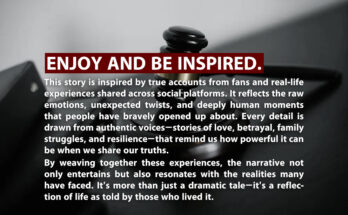It was 7:30 when the phone rang. A woman asked what time we closed, and I told her 8. She said she needed to make a quick return and would be there by 7:58. Could we stay open just a little longer? I explained that we lock the doors at 8 sharp—sometimes earlier if no one’s inside. She insisted she’d make it in time. “If you say so, ma’am,” I replied, already knowing how this would go. At 7:59, with the store empty, I locked the doors, turned off the music, and started the closing email. Then I saw her.
It was 8:10. She stood outside, box in hand, staring at the darkened store. Her face twisted into a scowl as she realized I hadn’t waited. She didn’t knock. She didn’t call. She just turned around slowly, giving me the dirtiest look I’ve seen in a long time. I watched from the back, half amused, half vindicated. She’d gambled on my patience and lost. I wasn’t being petty—I was following policy. And honestly, it felt good to stand firm. We’re not paid to wait past closing for someone who can’t respect the clock.
I’ve dealt with plenty of last-minute shoppers, but this one stuck with me. It wasn’t just the entitlement—it was the assumption that her time mattered more than mine. That I’d bend the rules for her convenience. I’ve learned that boundaries matter, especially in retail. If we say we close at 8, we mean it. Not 8:01. Not “just a quick return.” We mean 8. And when someone tries to push past that, it’s not just inconvenient—it’s disrespectful.
My shift lead backed me up. “You did everything right,” they said. “She knew the rules.” That validation meant a lot. In customer service, we’re often expected to smile through everything, even when it’s unfair. But this time, I didn’t have to. I followed protocol, kept my cool, and let the situation speak for itself. She didn’t get her return, but I got something better: peace of mind and a quiet store, exactly when I was supposed to.
I don’t hold a grudge. I just remember the lesson. People will test your boundaries, especially when they think their needs are urgent. But urgency doesn’t override respect. I wasn’t rude. I wasn’t dismissive. I was clear. And when she showed up late, the locked door wasn’t punishment—it was policy. I hope next time she checks the time before assuming someone will wait for her.
Thirteen years from now, I’ll still remember her face in the dark, clutching that box, glaring through the glass. And I’ll remember how good it felt to stand my ground. Because sometimes, the best customer service is knowing when to say, “No, ma’am. We close at eight.”


